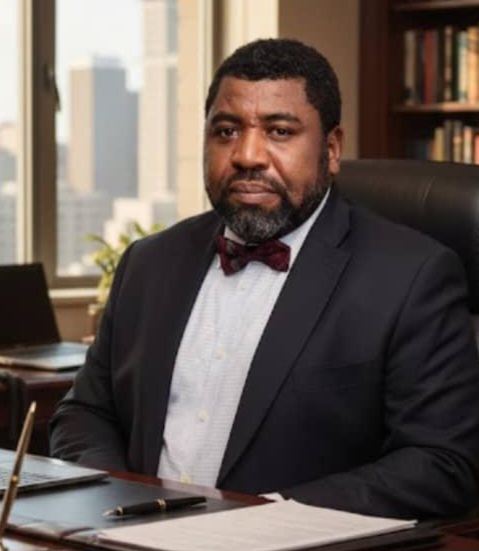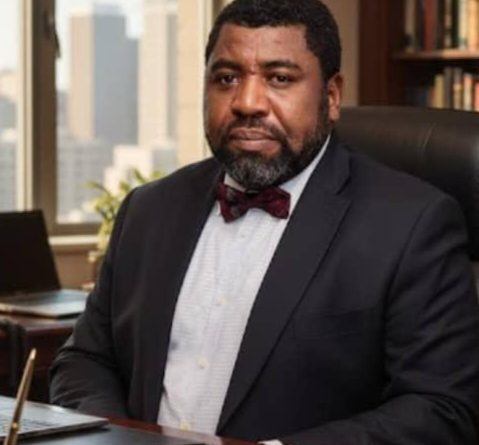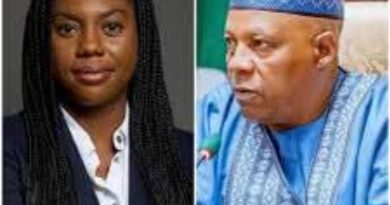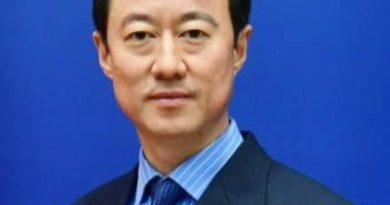Trump’s Nigeria Moment,By Anthony Kila
When U.S. President Donald Trump recently issued a warning of potential military intervention in Nigeria, citing concerns over “religious persecution,” the announcement reverberated across both nations.
In Nigeria, immediate responses ranged from indignation to apprehension; in Washington, analysts hurried to interpret the underlying message. Yet, beyond the headlines and public discourse, the vital task remains — to comprehend not merely the words spoken by Trump, but the deeper implications they carry and what Nigeria can learn, undertake, and achieve in response to this pivotal moment.

Is this a crisis of perception or a matter of fact? At the heart of this recent diplomatic dispute lies a profound misunderstanding. President Trump, true to his penchant for impulsive remarks, seems to have acted based on flawed intelligence and archaic stereotypes concerning Nigeria’s leadership and religious composition.
In their public statements, Donald Trump and his associates seem to hold a misconception of Nigeria as a country ruled by ‘Muslim fanatics who oppress Christians.’ Such an assessment is entirely unfounded and misleading. President Bola Ahmed Tinubu, although a Muslim himself, is neither a fanatic nor antagonistic towards Christianity; instead, his political path has been characterised by a deliberate effort towards inclusivity that transcends religious boundaries. His wife, Senator Oluremi Tinubu, is a devout Christian and an ordained pastor, embodying the best of the nation’s religious harmony. Moreover, Nigeria’s government and administrative circles reflect its broad ethnic and religious diversity, rather than divisions. One would have expected such a Nigerian leader to be a natural ally to an America genuinely seeking peace and stability in Nigeria and Africa.
The greater tragedy lies not in Trump’s misguided perception of Nigeria, but in the disturbing reality that the world’s most influential office can so readily speak from a place of ignorance regarding Africa’s largest democracy—a nation with such a rich tapestry of cultures, faiths, and aspirations.
Looking beyond the outburst, one quickly realises that, as ever, every mistake — even one made by a U.S. president — presents an opportunity. Trump’s misguided criticism, paradoxically, might serve as a catalyst for Nigeria to forge a stronger, more visible alliance between patriotic Muslims and Christians who share not only a faith in God but also a belief and pride in the imperfect yet precious republic called Nigeria.
In this light, President Tinubu finds a unique moment of opportunity. He can transform a moment of external misunderstanding into an affirmation of internal unity and modern identity. By responding to Trump’s remarks with calm dignity, Nigeria can demonstrate strength and maturity — illustrating to the world that, regardless of how hard a few interested, powerful voices might attempt to shape it, the country’s current struggle is not rooted in religious division, but in the battle between development and underdevelopment, progress and stagnation, leadership and inertia.
Certainly, Trump’s outburst is not solely rooted in religion. In international affairs, religion often serves as a language of power. The United States under Trump has consistently intertwined theology with strategic interests, and his remarks regarding Nigeria should be viewed within the context of a broader geopolitical narrative.
Once again, Washington is testing its voice in Africa—a continent where China is expanding its infrastructure, Russia is supplying mercenaries, and Europe is recalibrating its influence. Nigeria, by virtue of its size and symbolism, is too significant to be overlooked. Trump’s message, therefore, is aimed as much at Beijing and Moscow as it is at Abuja.
Furthermore, Trump’s political strategy appears straightforward: project strength abroad to bolster his image at home. Criticising Nigeria aligns seamlessly with his “America-first” persona and resonates with evangelical and conservative segments that respond to rhetoric about persecuted Christians overseas.
The Nigerian government has thus far demonstrated admirable restraint in its response. In such tumultuous times, it becomes imperative for Nigeria’s political parties, religious organisations, and various interest groups to recognise their collective responsibility. Despite any internal disagreements or rivalry, they must remain vigilant against external manipulation, particularly by foreign powers such as the United States, seeking to exploit internal divisions for their own strategic gains. Upholding national unity emerges as the most compelling and effective diplomatic asset—an unyielding testament to Nigeria’s strength and resilience in the face of external and internal challenges.
Three principles should therefore guide Nigeria’s response.
One is to respond with calmness and clarity. The government needs to address Trump’s misunderstanding factually, without anger. Truth is Nigeria’s most potent weapon.
Second is to engage intelligently. Nigeria must utilise diplomats, scholars, and respected American voices to shift the narrative in Washington.
Third is to strengthen internally. Let this moment prompt national dialogue on unity and nationhood — showing the world that Nigeria is imperfect but indivisible. As Nelson Mandela reminded us, “When you speak to a man in the language he understands, that goes to his head; when you speak to him in his language, that goes to his heart.” Nigeria must now speak both to America’s head and heart — combining logic and dignity.
The real danger in Trump’s Nigeria moment is not invasion, but image. Nations rise and fall not just on what they do, but on what others believe they are. Correcting Trump’s perception is part of correcting Nigeria’s global narrative — one that often lags behind its reality.
Handled wisely, this episode can become a turning point: a chance for Nigeria to reclaim its moral and diplomatic self-definition, to project strength through civility, and to inspire a new domestic unity between Muslims who feel unduly tagged and those patriotic and discerning Christians who remain loyal to facts and the republic.
For President Tinubu, this may yet be a blessing in disguise — the opportunity to turn a careless insult into a defining moment of statesmanship. For Trump, it is a reminder that rhetoric may rouse applause, but facts still matter. And for Nigeria, it is one more lesson in the oldest art of politics — that calm, informed dignity always outlives noise.
Join me, @anthonykila, if you can, to continue these conversations.
Anthony Kila is a Jean Monnet Professor of Strategy and Development at the Commonwealth Institute for Advanced and Professional Studies.




